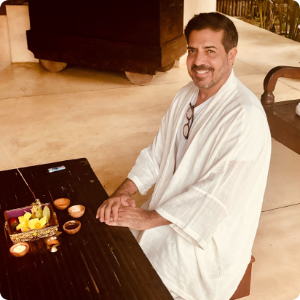Forgiveness and You
May 27, 2025
I don’t know about you, but when it comes to the subject of Forgiveness, I can use all the help I can get.
So I've collected my thoughts on this topic – both through other research and my own experience – and of course I welcome your own experience, your own insights, your own discoveries that you've made to become part of this discussion.
I wanted to first start with the classic definition of forgiveness, because it's important when we use words to understand what we're talking about and what we're not talking about. And sometimes getting very specific with our wording can actually help us avoid obstacles in our path. So, the classic definition of forgiveness is, “to stop feeling angry or resentful towards someone for an offense, flaw, or mistake.”
And I think what you will hopefully find curious about this definition is that it actually focuses on… who? Who does it focus on? It focuses on us, exactly. And there's nothing in here that in any way speaks to the condoning of an action.
As a matter of fact, there's nothing in here really about the other person at all, other than the way you're feeling about them, which is really about you. So again, it's about your stopping to feel angry or resentful toward someone for an offense, flaw, or mistake. It's the stopping of the feeling that we're talking about here. And ultimately, that is a personal experience.
It's an important distinction to make as we go into the rest of this conversation, so let's keep that in mind as we explore deeper.
Now in this conversation, I want to expand our definition of forgiveness from what might be kind of an old (or classic) paradigm to one that's a bit more progressive in its scope. Kind of like how Newtonian physics worked for a long time. And then we had relativity and quantum mechanics that expanded our understanding.
In many instances, of course, Newton's equations work beautifully. It helps us get rocket ships to the moon and satellites orbiting, but at the same time, the expanded physics allows for a deeper understanding and deeper possibilities. And it's the same with forgiveness.
Much of what we do with forgiveness on a day-to-day basis, the typical toolkit might work, but there are going to be instances where something a bit more radical can actually blow us open in a beautiful way and help us expand and grow much faster and much more powerfully and with impact.
So, what is the real difference, fundamentally, between standard, off-the-shelf forgiveness, if you will, and radical forgiveness? What I'd like to focus on in this conversation is that radical forgiveness states that we had a hand in what happened. Can you be open to this idea?
Now when I say this – or when you read it – immediately, you might try to go to examples in your own life or out in the world where this would be inapplicable. And certainly that's where your brain's going to go with it. But I just ask you to hold on to the openness. That's it.
We’ll continue this discussion in subsequent posts but I want to stop here and check in: have you considered this idea in your previous explorations of forgiveness? Are you experiencing some resistance to it? Let’s talk about it!


